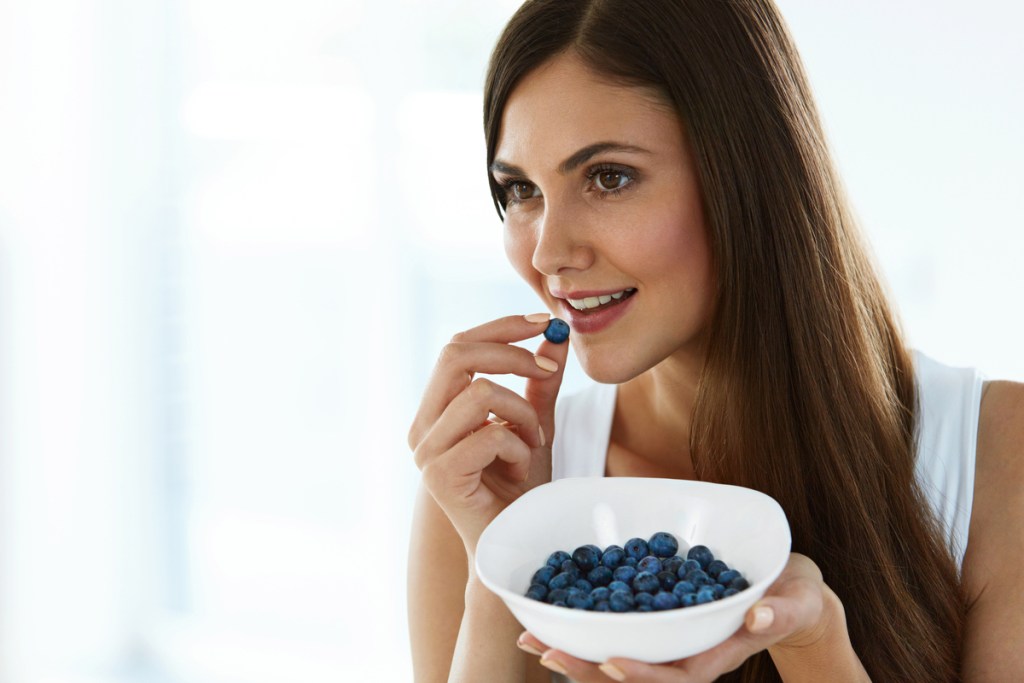According to the U.S. Centers for Disease Control and Prevention, memory loss affects one in nine Americans age 45 or older, with the condition ranging from mild annoyance to major impairment. Plenty of options exist for treating and accommodating memory loss and the problems it creates, but actual cures are few and far between.
This is where superfoods come in (seriously, what can’t they do?). Although there is never a magic bullet when it comes to our health, there is abundant evidence that the brain thrives on specific nutrients including omega-3 fatty acids, B vitamins, and antioxidants — the very things that many superfoods provide.
Superfoods come in all shapes, sizes, colors, textures, and flavors, so you’re bound to find one that fits your palate and your unique health needs. We’ve broken some of the most brain-healthy options to include in your diet but be sure to consult your health care professional before embarking on any new nutrition plan.

Green veggies
Leafy greens are a superfood mainstay. Many clean eaters knew kale for its rich antioxidant profile well before “superfood” became a household term. Leafy greens pack a giant punch of brain-friendly nutrients like vitamin K, lutein, folate, and beta carotene. A 2018 study published in the journal Neurology found that one daily serving of green leafy vegetables can slow the pace of age-related cognitive decline.
The power of green vegetables isn’t limited to the leafy types. Brain-healthy green veggies include:
- Asparagus
- Bok choy
- Broccoli
- Cabbage
- Collard greens
- Kale
- Lettuce
- Spinach
- Swiss chard
Each vegetable varies in terms of specific nutritional profile, but all these green veggies have a positive effect on at least one facet of cognitive function. Not sure what to pick? Start with what’s familiar and eventually begin to experiment with new flavors and ingredients!
Berries
With berries, color is important, but aesthetics have nothing to do with it. Those brilliant colors indicate the presence of flavonoids, which help sharpen memory. Deeper colors are a tip-off that they contain important phytochemicals like anthocyanins, which have anti-inflammatory properties.
Brain-healthy berry varieties include:
- Blueberries
- Strawberries
- Raspberries
- Blackberries
In general, blueberries are one of the world’s most nutrient-dense foods, so it’s not surprising that blueberries are a particularly strong ally in brain health. One study concluded that consuming blueberries led to better blood flow in the brain, along with improvements in memory and focus.

Tea and Coffee
Rejoice! Scientific evidence has shown that people who drank caffeinated beverages scored better on mental health tests, and doses of straight caffeine have also been proven to improve focus and memory retention.
Although coffee gets all the caffeine headlines, tea may bring a bigger benefit to the brain. That’s because tea contains the chemical compound L-theanine, which protects the brain from cognitive decline and conditions including Alzheimer’s disease.
Nuts
Substantial evidence has emerged in recent years connecting nut consumption to better cognitive performance, including improved memory. Nuts are very rich in micronutrients, like omega-3 and vitamin E, which protect the brain from free-radical damage.
Some of the nuts that are riches in these nutrients best promote brain health include:
- Almonds
- Hazelnuts
- Walnuts
- Pumpkin seeds
- Peanuts
- Sunflower seeds
Walnuts are one of the best nuts for brain health, as they’re rich in omega-3s and have been associated with improvements in cognitive test scores. Pumpkin seeds are also an excellent source of magnesium, iron, zinc, and copper — all of which are brain-boosting nutrients.
Remember that fun and creativity are the keys to any successful nutrition regimen, so you can find a dish that your stomach and brain will love.
BlissMark provides information regarding health, wellness, and beauty. The information within this article is not intended to be medical advice. Before starting any diet or exercise routine, consult your physician. If you don’t have a primary care physician, the United States Health & Human Services department has a free online tool that can help you locate a clinic in your area. We are not medical professionals, have not verified or vetted any programs, and in no way intend our content to be anything more than informative and inspiring.




